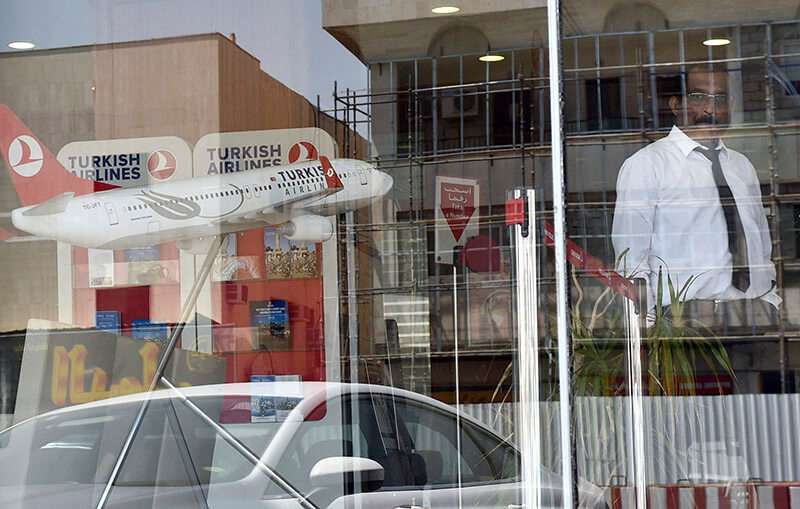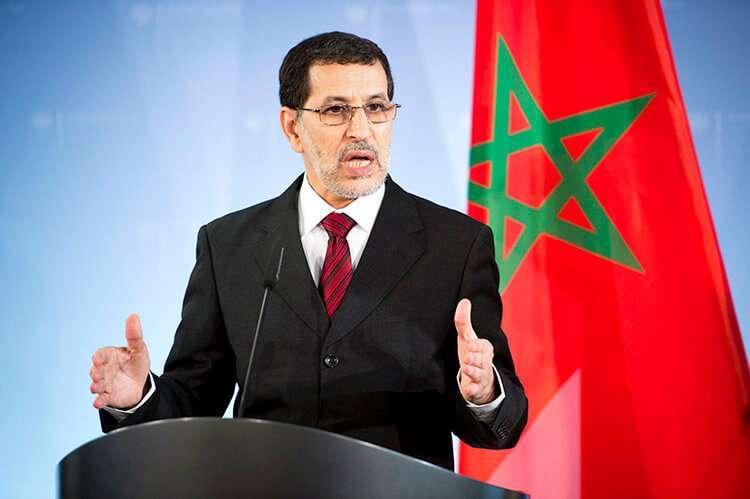Marruecos se suma al boicot saudí a los productos turcos

Earlier this month, the head of the Council of Saudi Chambers of Commerce Ajlan Al-Ajlan, wrote on Twitter that “boycotting everything that is Turkish, whether at the level of import, investment or tourism, is the responsibility of every Saudi ‘merchant and consumer’, in response to the continuing hostility of the Turkish government against our leadership, our country and our citizens.”
Wars in the 21st century are waged at the cost of such tariffs and tweets, which result in economic losses for the rival.
Turkish exports to Saudi Arabia fell by 16% this year, according to the Turkish Exporters' Assembly (TIM), with an 18% drop in trade volume (400 million euros), in the first eight months of the year, compared to the same period in 2019.
Now, according to the Middle East Eye web portal, Morocco has joined this Saudi strategy to boycott products made in Turkey.

On 15 October, Rabat imposed restrictions on Turkish supermarket chains and increased taxes on imported Ottoman products by 90 per cent. This measure came a day before the Moroccan government approved a revision of the free trade agreement signed between Rabat and Ankara in 2004, with the aim of "correcting the imbalances in the trade balance between the two countries", said the spokesman for the Rhine, Abdul Haq al-Marini.
At the beginning of the year, the Moroccan government announced the revision of the bilateral free trade agreement with Turkey, which has been in force since 2006. The reason for this revision was that, according to Morocco, this pact is detrimental to the economy of the Maghreb country, as it has led to a deficit of 2 billion dollars (some 1.7 billion euros).
The Moroccan government handled several official reports warning of the major trade imbalance the agreement with Turkey entails, while from the business side it accused the Turkish country of practising "dumping" in Morocco in order to take over the market, particularly in textiles, which dominate the local market.
The result has already been felt in the Turkish coffers. Ankara has seen its exports fall by 20% and its foreign trade deficit has doubled since January, following the increase in tariffs on its products at Moroccan and Algerian customs.
The reasons for this change in trade policy with Turkey from Morocco may be related to the pressure exerted by Abu Dhabi and Riyadh to carry out this "boycott", according to several Middle East Eye experts.
Morocco has been Turkey's biggest export market in North Africa with 2.24 billion dollars according to the figures of the Turkish Exporters' Assembly. Algeria is also an important country for the Turkish coffers. It is the fourth biggest gas supplier in Turkey with a covenant between the state company Sonatrach and the Turkish company Botas, which foresees the annual delivery of 5.4 billion cubic metres of liquefied natural gas until 2024. However, their political relationship has sometimes been marred by tension, particularly with Ankara's competition with Paris, which occupies opposite positions when it comes to a number of issues, including Libya, the eastern Mediterranean and the Nagorno-Karabakh conflict.

Now, Morocco is seeking to diversify its economy and is finding its best partners in Saudi Arabia and the United Arab Emirates. Furthermore, political relations with Ankara have grown more tense in recent years. In 2013, after the Gezi Park revolt, King Mohammed VI and several Moroccan businessmen refused to receive Recep Tayyip Erdogan, forcing him to shorten his stay.
The COVID-19 health crisis has led to a major economic crisis in the Alaouite kingdom. "The growth rate of the Moroccan economy will register deflation of around 5 per cent for the first time since the end of the 1990s, while macroeconomic balances will be badly affected, particularly as regards the budget deficit and the balance of payments current account," said the Kingdom's Minister of the Economy, Finance and Administrative Reform, Mohammed Benchaaboun, at the end of July. Moroccan Prime Minister Saadeddine El Othmani then unveiled a package of 11 national programmes to be implemented over the next three years that would generate 120,000 new jobs. Foreign investment will therefore play a prominent role in this recovery strategy.
Since 2003, Turkey's expansion into North Africa has focused on providing economic assistance, particularly in the Horn of Africa. But this strategy changed when, in 2017, Recep Tayyip Erdogan's government decided to open a military base in Mogadishu and began its involvement in military operations in the war in Libya.










